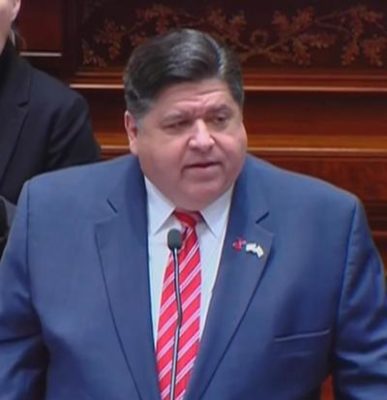Local lawmakers feel that Governor J.B. Pritzker’s 2nd budget is too big on spending. 93rd District Representative Norine Hammond gave her mixed reactions to the address. “I believe there were a lot of good things in the governor’s budget proposal today. There were some things that I’m a little skeptical on. Putting money into a rainy day fund is a wonderful thing to do, but when you’re in your household and looking at a stack full of bills that are overdue; you certainly wouldn’t put money into a savings account, you would pay down those bills. I think that should be a priority for us certainly. It’s the time now for all of us as members of the General Assembly within our appropriations committees to sit down and start the work of crafting a balanced budget without any tax increases.”
100th District Representative C.D. Davidsmeyer says that Springfield needs to do more for taxpayers. “[Governor Pritzker] talked about all the savings he’s going to provide but he also talked about all the expansions. I think anyone who does basic math can understand that those two things don’t come together. The reality is the State of Illinois is lagging in the nation in economic growth. If it weren’t for the Trump tax cuts that brought an additional $1.4 billion last year and an additional $800 million this year, we wouldn’t be doing well at all. We need to focus on making our pension payments, paying off the old bills, and not expanding programs at this time.”
50th District State Senator Steve McClure took a more hostile tone to the governor’s address. He thinks that taxpayers are getting the brunt of more expanded spending. “Well, $1.6 billion in new spending. No sacrifices on the part of the governor or our government. Taxpayers are already angry and this is not going to help their concerns. The governor had asked for state agencies to come up with 6.5% reductions in spending and to utilize that. On top of that, we’ve got $650 million in new revenue, natural revenue growth. With those two together, as long as we’re willing to make some sacrifices, we don’t need – quite frankly – to implement new rates that are going to cause taxpayers in certain areas for their taxes to go up. The governor and the government needs to stop asking taxpayers alone to make the sacrifices.”
McClure and many of his Republican colleagues went on to rail against the bloated government and the idea of a possible income tax increase with the graduate income tax amendment this November. Other groups, like Illinois Primary Health Care Association, applauded the governor’s efforts to pay off the backlog of health care bills and ensuring essential funding to state programs. If voters approve the graduated tax, it would take effect Jan. 1 and generate an estimated $1.4 billion for the state through June 30, 2021, the end of the next fiscal year. If voters reject the graduated tax, adjustments will have to be made to Pritzker’s proposed budget. Members of the GOP and some groups around the state accused the governor of holding the state hostage to the graduated income tax’s passage.




